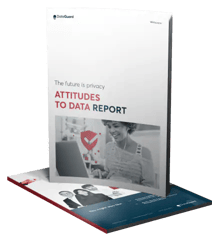As technology advances and data becomes more prevalent in our daily lives, privacy concerns continue to rise. The privacy paradox refers to the idea that while individuals claim to value privacy, their actions often suggest otherwise.
Companies must focus on transparency and security to create trust and address these concerns. This article will explore the privacy paradox and provide best practice guidance for companies looking to establish trust through transparency and security.
What is the Privacy Paradox?
The privacy paradox refers to the discrepancy between individuals' stated values and their actions when it comes to privacy. For example, a study by the Pew Research Center found that 91% of adults "agree" or "strongly agree" that consumers have lost control of how personal information is collected and used by companies. However, the same study found that 80% of adults have "ever" shared personal information online.
This discrepancy is not limited to individuals, as companies also struggle with balancing the collection and use of data with privacy concerns. Take online shopping as an example: 80% of shoppers are more likely to buy from a company that offers personalized experiences. However, as Boston Consulting Group found out, 79% of consumers do not trust organizations to do the right thing with their data.
Transparency, Security and Challenges
To address the privacy paradox and establish trust with consumers, companies must focus on transparency and security. Transparency refers to the ability of individuals to understand and control how their data is being collected, used, and shared. Security refers to the measures taken to protect personal information from unauthorized access or use.
Transparency can be achieved through clear and concise privacy policies and by providing easily accessible mechanisms for individuals to control their data. This could include opt-in or opt-out options for collecting and sharing personal information, as well as access to the data that a company has collected.
Security can be achieved through various measures, including encryption, secure servers, and regular security audits. It is also essential for companies to have incident response plans in place to quickly address and notify individuals in the event of a data breach. It is important to note that transparency and security are not mutually exclusive. Rather, they complement each other.
A company that is transparent about its data practices and provides individuals with control over their data is more likely to be trusted. Similarly, a company that takes appropriate security measures to protect personal information is more likely to be trusted.
One of the key challenges in achieving transparency and security is striking a balance between the collection and use of data and privacy concerns. This is a delicate balance, as companies need to collect and use data to provide products and services. Still, at the same time, individuals are becoming increasingly aware of the value of their personal data and are demanding more control over how it is collected and used.
To address this challenge, companies should conduct a data protection impact assessment (DPIA) to evaluate the risks and benefits of their data practices. The GDPR requires companies to conduct DPIAs in certain circumstances, such as when new technologies are introduced or when a company is processing large amounts of sensitive personal data. The purpose of a DPIA is to identify and mitigate any potential privacy risks associated with data practices.
Another key challenge is ensuring that data practices are consistent across different regions and jurisdictions. This is becoming increasingly important as companies operate globally and are subject to other privacy laws and regulations. To address this challenge, companies should develop a global privacy program that takes into account the laws and regulations of different regions and jurisdictions.
We have discussed the privacy paradox in the 2021 version of our exclusive EPIC summit. Check it our to get the views of true industry experts!
Regulatory and Supervisory Guidance
Regulators and supervisory authorities have issued guidance on transparency and security to address privacy concerns. The European Union's General Data Protection Regulation (GDPR) requires companies to be transparent about their data practices and to implement appropriate security measures. The Federal Trade Commission (FTC) in the United States has issued guidance on developing transparent privacy policies and protecting personal information.
In addition to these regulations, organizations such as the International Association of Privacy Professionals (IAPP) and the Centre for Information Policy Leadership (CIPL) provide best-practice guidance for companies looking to establish trust through transparency and security.
Conclusion
In conclusion, the privacy paradox presents a challenge for companies looking to establish consumer trust. By focusing on transparency and security, companies can address privacy concerns and create trust with their customers.
Transparency and security are not mutually exclusive; rather, they complement each other. Striking a balance between the collection and use of data and privacy concerns is key; companies should conduct a data protection impact assessment (DPIA) to evaluate the risks and benefits of their data practices. Finally, companies should also ensure that data practices are consistent across different regions and jurisdictions by developing a global privacy program.
Did you enjoy reading this? If so, you might also be interested in reading 10 Data Privacy Tips for Your Business and Top 5 Privacy Trends You Should Know in 2023.


Report: Attitudes to Data
How to better serve the consumer with a privacy-first approach











